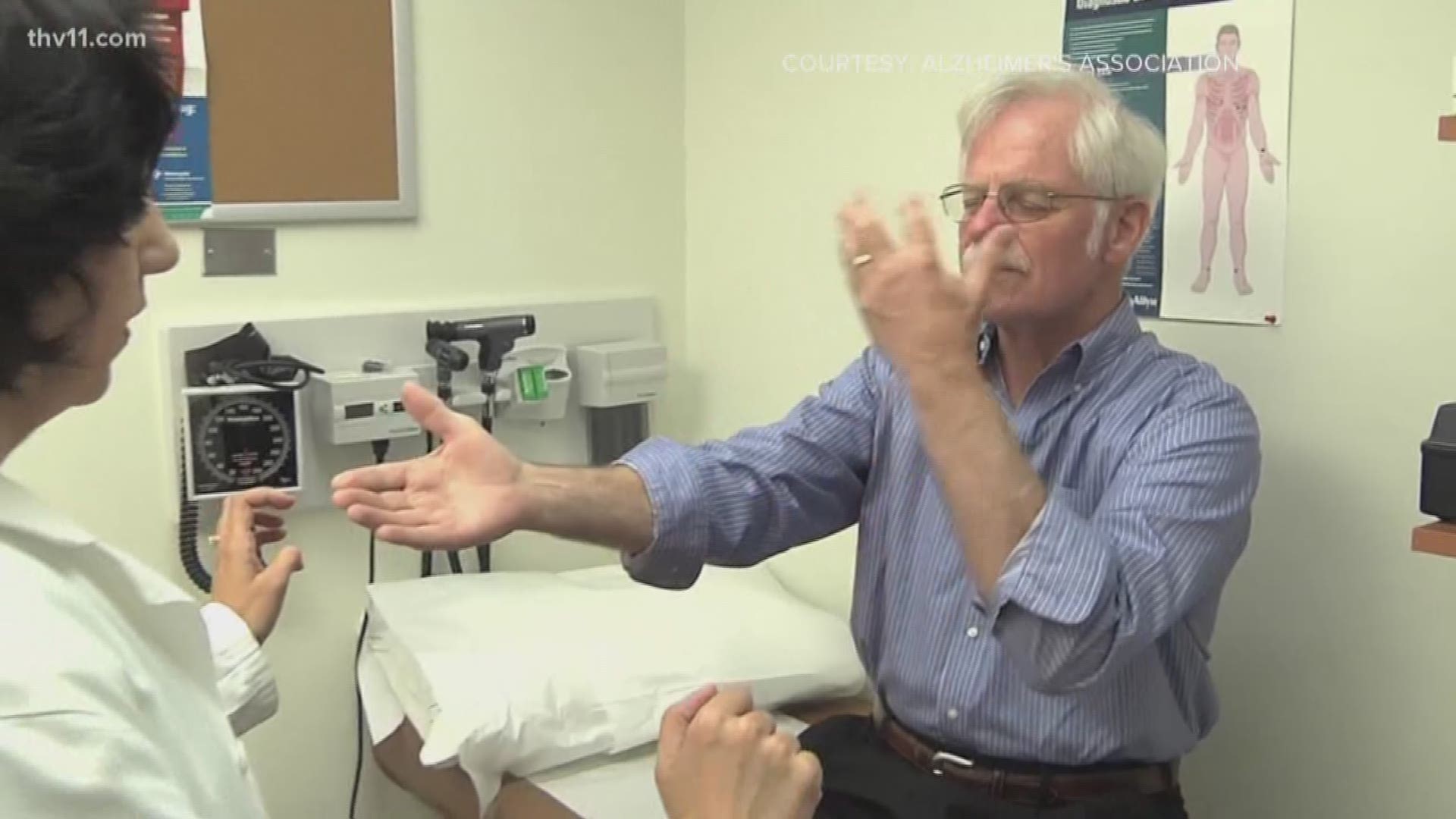LITTLE ROCK, Ark. (KTHV) - As many as 100,000 or more Arkansans suffer from Alzheimer’s Disease, and that number is expected to skyrocket in the years to come.
A new report from the Alzheimer’s Association shows how the disease will continue to spread, and how much it will impact our community.
According to the report, while deaths due to heart disease dropped 11 percent from 2000-2015, the number of deaths due to Alzheimer’s Disease rose by 123 percent.
ALZHEIMER'S IN ARKANSAS
Elise Siegler, president of Alzheimer’s Arkansas, said the disparity happened, “because there’s no money going into research...There are funds going into research, but not nearly the amount that we need.”
Siegler said 60,000 Arkansans have been diagnosed with Alzheimer’s; she estimated another 60,000 live with it but have not been diagnosed.
Azheimer’s Disease is the most common form of dementia. There is no known cure, treatment, prevention, or cause.
Carolyn Torrence stated that we have to be ready for it. “Getting older, sometimes, is not as old as you think it is,” she said. “And it comes faster than you can imagine.”
THE TOLL ON CAREGIVERS
Torrence, the program director at Alzheimer’s Arkansas, helped care for her father when he got the disease. She and Siegler both discussed how much it affects not only those with the diagnosis, but their caregivers.
“It’s juggling your family, your job, making time to go over and help. It can become very stressful,” Torrence explained. “Not feeling like, you’re giving enough, or giving too much in other things. You’re not taking care of everything.”
The report states that 16.1 million people provide unpaid care for those with dementia. Siegler said most caregivers are relatives, and they are frequently wives or daughters.
1-in-4 caregivers die before the patient in their care, because of the physical and emotional toll of the role.
“When you’ve got one of out every three elderly—over the age of 65—caring for their loved one and, if you can imagine, that two thirds of those are women," she stated."...She has to be the nurse, she has to be the lawyer, she has to be the nutritionist. She has to play all these roles that she never had to play before, and she doesn’t have the time to take care of herself.”
THE COST OF CARE
According to the Alzheimer’s Association, the cost of caring for Alzheimer’s Disease will quadruple in the next 30 years, from $277 billion this year to $1.1 trillion in 2050. The number of Americans who live with it is expected to rise from 5.7 million this year to 14 million in 2050.
The report claims that early detection would benefit patients by reducing medical costs and improving the quality of their lives. Siegler doubted that.
“Early detection is only helpful if you can slow it down or you can stop it,” she argued. “And at this point, there’s no medication that will slow this dementia down, or stop it, or prevent it.”
Knowing sooner may allow people time to plan the end of their lives, “But, understanding that the disease is fatal is also very devastating to the person, to the family,” Siegler added. “That can be a con.”
1-in-10 OLDER ARKANSANS HAVE ALZHEIMER'S
With no treatment in sight, Alzheimer’s Arkansas focuses on helping caregivers through education and emotional and financial support.
Siegler said Arkansas needs to become more Alzheimer’s-friendly, because 1-in-10 people over the age of 65 has the disease.
“If you’re stopped in a grocery line because the woman can’t find, or doesn’t understand that she’s now paying for her groceries, understand, she probably has dementia,” Siegler said. “Let’s not get frustrated, let’s not get angry. Let’s help the person through the situation, and let’s find her help.”
THE GOAL OF ALZHEIMER'S ARKANSAS
She hopes to make caregivers’ lives a little simpler, as well, so that loving someone with Alzheimer’s does not kill them, too.
“And when a friend says to you, ‘oh, I can help you grocery shop,’ take them up on that offer,” Siegler advised.
“...If it’s gonna relieve some of your stress, allow people to help you,” Torrence added. “Because, really, people do want to help.”
Torrence said people should accept that Alzheimer’s will become even more prevalent.
“Nobody wants to talk about, ‘if I get Alzheimer’s, or if I become disabled, or if I can’t care for myself.’ But the reality is: that’s really a talk that we need to have with our loved ones.”

